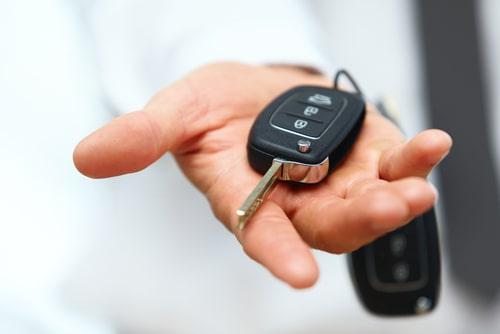Can I Request a Hearing to Contest a DWI Driver’s License Suspension?
 Being arrested on suspicion of drunk driving is a serious matter. Criminal charges for Driving While Intoxicated (DWI) can result in a number of penalties, but even if you are not charged with or convicted of DWI, you could face the suspension of your driver’s license. By understanding when a license suspension will apply, when you can request an administrative hearing, and how you can regain your driving privileges, you can determine your best options in these situations.
Being arrested on suspicion of drunk driving is a serious matter. Criminal charges for Driving While Intoxicated (DWI) can result in a number of penalties, but even if you are not charged with or convicted of DWI, you could face the suspension of your driver’s license. By understanding when a license suspension will apply, when you can request an administrative hearing, and how you can regain your driving privileges, you can determine your best options in these situations.
Administrative License Revocation (ALR)
When a police officer has probable cause to believe that a person was driving while under the influence of alcohol, drugs, or any other substances that impaired their ability to operate a motor vehicle safely, they may perform an arrest. After taking the person to a police station, the officer will request a sample of their breath or blood, which will be used to determine whether they were legally intoxicated while they were driving. When requesting a breath or blood sample, the officer will provide a warning detailing the consequences the person will face if they refuse to give a sample or if they are over the legal blood alcohol limit.
Drivers over the age of 21 may “fail” a test if an analysis of their blood or breath shows that they have a blood alcohol concentration (BAC) of at least .08 percent or that they have any detectable amount of an illegal controlled substance in their system. Drivers under the age of 21 may fail a test if they have any alcohol in their system. For drivers over the age of 21, the failure of a breath or blood test will result in a 90-day suspension of their driver’s license. For drivers under the age of 21, the failure of a blood or breath test will result in a 60-day license suspension. Any driver who refuses to submit to a test will face a 180-day license suspension.
Requesting an Administrative Hearing
If you are subject to an Administrative License Revocation, a police officer will take your driver’s license and give you a temporary driving permit and a notice of license suspension. If time will be needed to analyze a blood sample, a notice of suspension may be mailed to you. Your license suspension will go into effect 40 days after you receive the notice of suspension. You will generally have 15 days after receiving the notice to request an administrative hearing to contest the suspension. A hearing may be scheduled within 30 to 60 days after making a request, and the suspension will not go into effect until the hearing is held.
At the hearing, an Administrative Law Judge (ALJ) will review the case to determine whether your license should be suspended. You may provide evidence related to your arrest, and the ALJ may look at whether the officer had a valid reason to stop you, whether they had probable cause to make an arrest, and whether you agreed or refused to take a blood or breath test. The ALJ will then decide whether your license should or should not be suspended.
Contact Our Tarrant County Driver’s License Suspension Hearing Lawyer
If you have been arrested for DWI, a license suspension hearing is just one issue that you will need to address. You may also need to determine how to defend against criminal DWI charges, and if your license is suspended, you may be able to request an occupational license. The Dameron Law Firm can assist with all of these issues, and we will help you take the correct steps to ensure that you will be able to continue driving and avoid disruptions to your life. Contact our Fort Worth DWI defense attorney at 817-222-0624 to set up your free consultation today.
Sources:
https://www.dps.texas.gov/internetforms/getForm.ashx?id=DIC-24.pdf
https://www.dps.texas.gov/section/driver-license/administrative-license-revocation-alr-program
https://www.soah.texas.gov/about-drivers-license-hearings

 817-222-0624
817-222-0624







